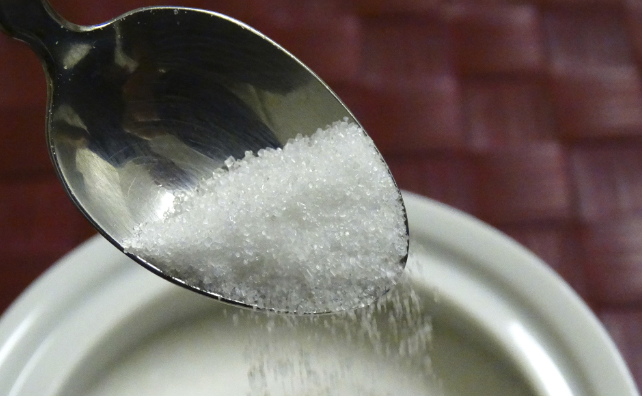Sugar addiction is increasing. Globally, sugar intake has quadrupled over the past 60 years and now accounts for about 8 percent of all our calories.
This sounds like sugar nourishes us, but added sugars are actually empty calories; they do not contain nutrients such as vitamins or fiber. The result is huge health costs, with sugars linked to obesity around the world. Some estimates suggest that half of the world’s population could be obese by 2035.
In the US alone, a modest 20 percent sugar reduction could save an estimated $10.3 billion (£8.1 billion) in healthcare costs. Yet the impact of sugar goes far beyond just health and money.

There are also many environmental problems associated with sugar cultivation, such as loss of habitat and biodiversity and water pollution from fertilizers and mills. But overall, sugar has not received much attention from the scientific community, despite being the largest cultivated crop in the world by mass.
In a recent article, we assessed the environmental impact of sugar and explored options for reducing dietary sugar levels to recommended levels, either by reducing production or using stored sugar in an environmentally friendly way.
By phasing out sugar, we can save land that can be revegetated and store carbon. This is especially important in tropical areas with high biodiversity where sugar production is concentrated, such as Brazil and India.
But another, more politically palatable option could be to divert dietary sugar to other environmentally friendly uses, such as bioplastics or biofuels.
Our research shows that the biggest opportunities lie in using sugar to feed microbes that make proteins. By using the stored sugar for this microbial protein, enough plant-based, protein-rich food products can be produced to feed 521 million people on a regular basis. And if this were to replace animal protein, it could also have huge emissions and water benefits.
We estimate that if this protein replaced chicken it could reduce emissions by almost 250 million tonnes, and that we would see even greater savings if we replaced beef (for reference, Britain’s national fossil fuel emissions are about 300 million tons). Since sugar has a much lower climate impact than meat, this makes perfect sense.
Another alternative is to use the diverted sugar to produce bioplastics, which would replace about 20 percent of the total market for polyethylene, one of the most common forms of plastic and used to produce everything from packaging to pipes. Or to produce biofuels, producing approximately 198 million barrels of ethanol for transportation.

Brazil already produces about 85 percent of the world’s ethanol and produces it from sugar, but instead of having to grow more sugar for ethanol, we could get the sugar from food. This estimate is based on a world in which we limit dietary sugars to the maximum in dietary recommendations (5 percent of daily calories). The benefits would be even greater if we reduced sugar consumption even further.
Challenges in the supply chain
This sounds like a big win-win: cut sugar to reduce obesity and help the environment. But these changes pose enormous challenges in a sugar supply chain that spans more than a hundred countries and the millions of people who depend on sugar income.
National policies such as sugar taxes are vital, but international coordination is also important in such a vast supply chain. Sustainable agriculture will be discussed this week at the UN climate summit, Cop29, in Azerbaijan. Sustainable sugar production should play a role in these global conversations, given the many environmental issues and opportunities that arise from changing the way we grow and consume sugar.
We also suggest that groups of countries could come together in sugar transition partnerships between producers and consumers, encouraging a diversion of sugar from people’s diets to more beneficial uses. This could be coordinated by the World Health Organization, which has called for a reduction in sugar consumption. Some of the money to finance these efforts could even come from a share of health care savings in national budgets.
We can’t hope to change the way we produce and eat sugar overnight. But by exploring other uses for sugar, we can highlight the environmental benefits we’re missing out on and help policymakers chart a resource-efficient path to the industry while improving public health.![]()
Paul BehrensBritish Academy Global Professor, Future of Food, Oxford Martin School, University of Oxford and Alon Shepon, Principal Investigator, Department of Environmental Studies, Tel Aviv University
This article is republished from The Conversation under a Creative Commons license. Read the original article.
